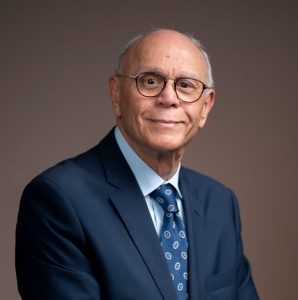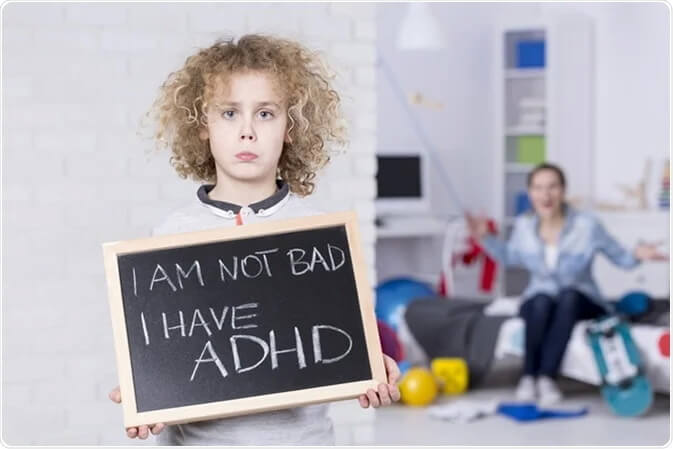
Dr. Hafez Amin
Consultant Psychiatrist
Yas Healthcare (Saada Branch)
Abu Dhabi

Attention Deficit Hyperactivity Disorder (ADHD)

ADHD, also called attention-deficit hyperactivity disorder, is a behavior disorder, usually first diagnosed in childhood, that is characterized by inattention, impulsivity, and, in some cases, hyperactivity. These symptoms usually occur together; however, one may occur without the other(s).
The symptoms of hyperactivity, when present, are almost always apparent by the age of 7 and may be present in very young preschoolers. Inattention or attention-deficit may not be evident until a child faces the expectations of elementary school.
There are three major types of Attention Defecit Hyperactivity Disorder include the following:
Combined type. This, the most common type of ADHD, is characterized by impulsive and hyperactive behaviors as well as inattention and distractibility.
Impulsive/hyperactive type. This, the least common type of ADHD, is characterized by impulsive and hyperactive behaviors without inattention and distractibility.
Inattentive and distractible type. This type of ADHD is characterized predominately by inattention and distractibility without hyperactivity.
Each child may experience symptoms of ADHD differently. The 3 categories of symptoms of ADHD include the following:
Symptoms of Attention Deficit Hyperactivity Disorder (ADHD)
Inattention:
- Short attention span for age (difficulty sustaining attention)
- Difficulty listening to others
- Difficulty attending to details
- Easily distracted
- Forgetfulness
- Poor organizational skills for age
- Poor study skills for age
Impulsivity:
- Often interrupts others
- Has difficulty waiting for his or her turn in school and/or social games
- Tends to blurt out answers instead of waiting to be called upon
- Takes frequent risks, and often without thinking before acting
Hyperactivity:
- Seems to be in constant motion; runs or climbs, at times with no apparent goal except motion
- Has difficulty remaining in his/her seat even when it is expected
- Fidgets with hands or squirms when in his or her seat; fidgeting excessively
- Talks excessively
- Has difficulty engaging in quiet activities
- Loses or forgets things repeatedly and often
- Inability to stay on task; shifts from one task to another without bringing any to completion
The symptoms of ADHD may resemble other medical conditions or behavior problems. Keep in mind that many of these symptoms may occur in children and teens who do not have ADHD. A key element in diagnosis is that the symptoms must significantly impair adaptive functioning in both home and school environments.
Treatment of Attention Deficit Hyperactivity Disorder (ADHD)
For children with ADHD younger than 6 years of age, behavior therapy is an important first step before trying medication
Good treatment plans will include close monitoring of whether and how much the treatment helps the child’s behavior, as well as making changes as needed along the way.
Behavior Therapy, Including Training for Parents
ADHD affects not only a child’s ability to pay attention or sit still at school, it also affects relationships with family and other children. Children with ADHD often show behaviors that can be very disruptive to others. Behavior therapy is a treatment option that can help reduce these behaviors; it is often helpful to start behavior therapy as soon as a diagnosis is made.
The goals of behavior therapy are to learn or strengthen positive behaviors and eliminate unwanted or problem behaviors. Behavior therapy for ADHD can include
- Parent training in behavior management;
- Behavior therapy with children; and
- Behavioral interventions in the classroom
These approaches can also be used together. For children who attend early childhood programs, it is usually most effective if parents and educators work together to help the child.
Medications
Medication can help children manage their ADHD symptoms in their everyday life and can help them control the behaviors that cause difficulties with family, friends, and at school.
Several different types of medications are
- Stimulants are the best-known and most widely used ADHD medications. Between 70-80% of children with ADHD have fewer ADHD symptoms when taking these fast-acting medications.
- Nonstimulants do not work as quickly as stimulants, but their effect can last up to 24 hours.
Medications can affect children differently and can have side effects such as decreased appetite or sleep problems. One child may respond well to one medication, but not to another.